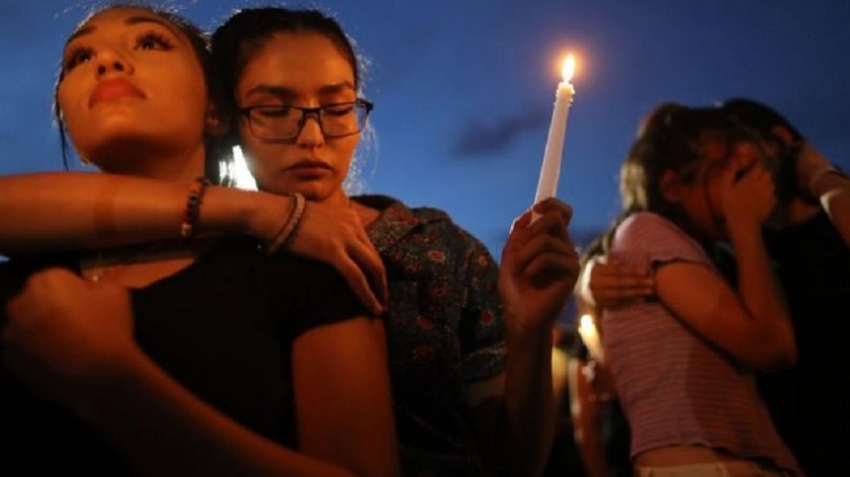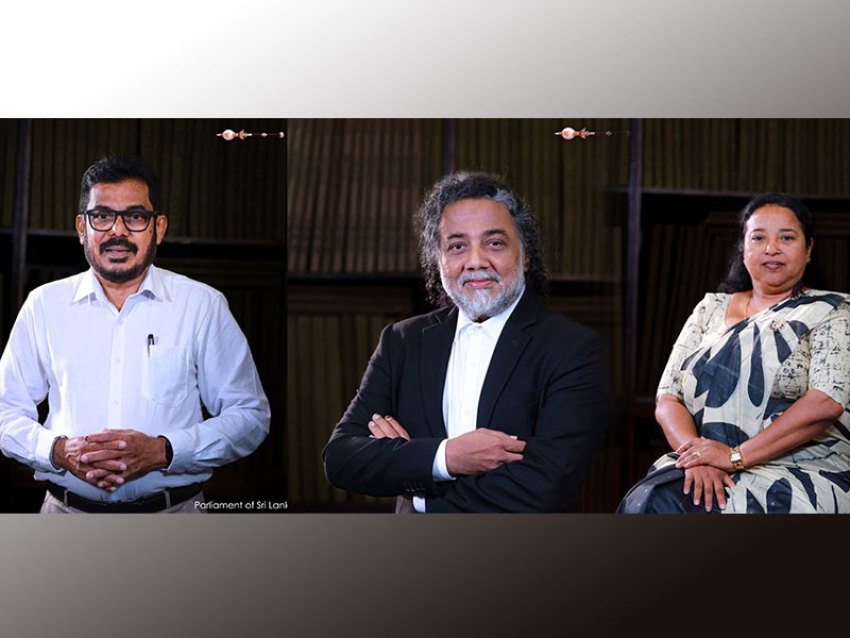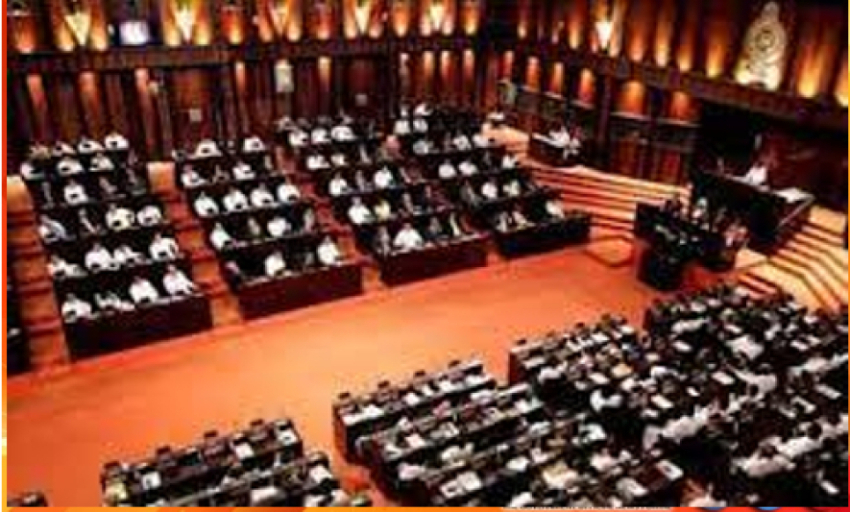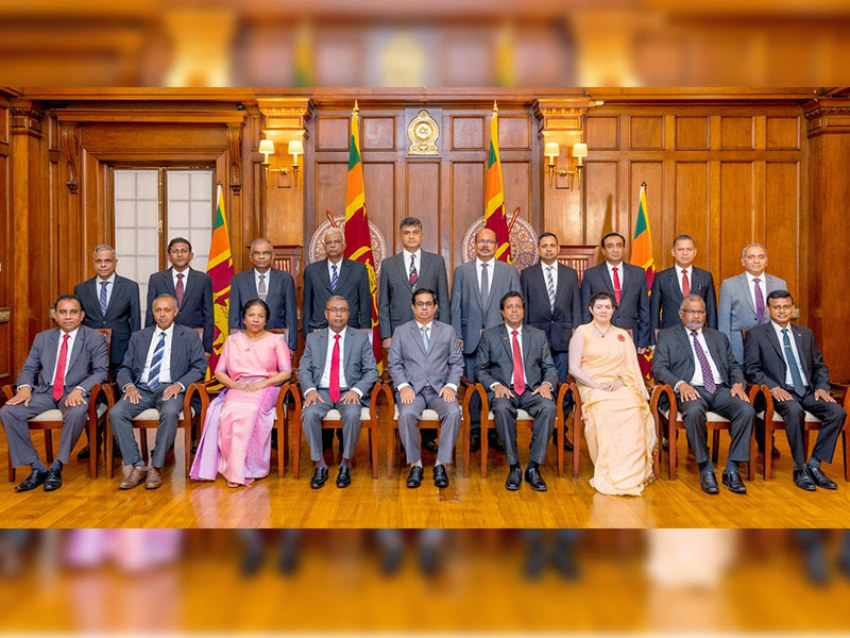The US suffered more mass killings in 2019 than any year on record, according to researchers.A database compiled by the Associated Press (AP), USA Today and Northeastern University recorded 41 incidents and a total of 211 deaths.Mass killings are defined as four or more people being killed in the same incident, excluding the perpetrator.Among the deadliest in 2019 were the killings of 12 people in Virginia Beach in May and 22 in El Paso in August.Of the 41 cases in 2019, 33 involved firearms, researchers said. California had the highest number of mass killings per state, with eight.The database has been tracking mass killings in the US since 2006, but research going back to the 1970s did not not reveal a year with more mass killings, AP reported. The year with the second-highest number of mass killings was 2006, with 38.Though 2019 had the highest number of incidents, the death toll of 211 was eclipsed by the 224 people who died in mass killings 2017. That year saw the deadliest mass shooting in US history, when 59 people were gunned down at a festival in Las Vegas.
Many mass killings in the US fail to make headlines because they involve family disputes, drug deals or gang violence, and don't spill into public places, the researchers said.Disgruntled employee kills 12 colleagues in Virginia Beach
22 killed and 24 wounded in El Paso rampage Gunman kills nine people and wounds 27 in Dayton, Ohio
Gunman kills seven, wounds 20 in Odessa and Midland, Texas The number of mass killings in the US had risen despite the overall number of homicides going down, said James Densley, a criminologist and professor at Metropolitan State University in Minnesota."As a percentage of homicides, these mass killings are also accounting for more deaths," he told AP.
Prof Densley said he believed the spike was partly a consequence of an "angry and frustrated time" in US society, but he added that crimes tended to occur in waves."This seems to be the age of mass shootings," he said.Gun ownership rights are enshrined in the second amendment of the US constitution, and the spike in mass shootings has done little to push US lawmakers towards gun control reforms.In August, following deadly attacks in Dayton, Ohio, and El Paso, Texas, President Donald Trump said "serious discussions" would take place between congressional leaders on "meaningful" background checks for gun owners.
But Mr Trump quietly rowed back on that pledge, reportedly after a long phonecall with Wayne LaPierre, the chief executive of the National Rifle Association - a powerful lobby group which opposes gun control measures.Speaking to reporters after the call, the president said the US had "very strong background checks right now", adding that mass shootings were a "mental problem".A solidarity vigil in memory of victims of a Las Vegas mass shooting
Leading Democrats have called publicly for stricter gun control measures.Earlier this month, presidential candidate and former US Vice-President Joe Biden used the seventh anniversary of the Sandy Hook school shooting to renew a call for tighter regulations. Mr Biden's plans include a ban on the manufacture and sale of assault weapons and mandatory background checks for all gun sales.Another Democratic presidential hopeful, Elizabeth Warren, outlined plans earlier this year to reduce gun deaths by 80% with a mixture of legislation and executive action. Ms Warren has also called for stronger background checks, as well as the ability to revoke licences for gun dealers who break the law.
What do US Democrats want to do about guns?
For the first time in nearly two decades, Democratic presidential candidates are talking seriously about new federal gun control regulations. But is it a passing moment spurred by recent tragedy or the sign of shifting political ground?This weekend, the Democratic presidential hopefuls who have been criss-crossing Iowa were supposed to be celebrating the state's, well, Iowa-ness. Nearly every candidate in the 24-person field had scheduled an appearance at the state fair - an event that draws millions to capital city Des Moines - to sample pork on a stick, view the life-sized cow sculpture made of butter and stand on hay bales to give their stump speech to sometimes curious and often bemused onlookers.
Also on the schedule was the annual "Wing Ding Dinner" in the northern town of Clear Lake - another of the state's quirky must-attend functions, where hundreds of party faithful pack a steamy old ballroom to listen to presidential hopefuls make their five-minute pitches to voters.Then the mass shootings in El Paso and Dayton happened, claiming the lives of 31 Americans - and adding to the list of roughly 40,000 in the nation killed annually by gun violence.In a flash, the aperture of the Democratic race narrowed, and instead of a generic weekend of campaigning, the focus over the past few days here in Iowa has been on gun violence and what these two dozen presidential aspirants think they can do about it.
'I wish the killer had known the real El Paso'Before the Wing Ding dinner, eight candidates and their supporters joined a crowd outside for a moment of silence in remembrance of the victims of El Paso and Dayton.The gathering was organised by campaign staff of former El Paso Congressman Beto O'Rourke, who cancelled his Iowa visit to help his home town mourn.In Clear Lake, Cory Booker praised O'Rourke's decision and said he scrapped his planned speech that night to talk about gun violence and American values."This is one of those moral moments in our nation that's going to define the character of our country," he said. "And this is a week where I will not let the slaughter of our fellow citizens just disappear within the next media cycle."
What the world thinks of US mass shootings Dustin Menke, who lives in nearby Manly, said he was impressed by Booker's speech. He used to oppose gun bans, he said, but now he's torn on the issue. "We've got to do something about the gun violence in this country," he said. "That's just the bottom line. Not taking any action? There are consequences."A day spent calling for action The day after the Wing Ding Dinner, 16 candidates shoehorned into their schedules an appearance at a hastily put-together "Presidential Gun Sense Forum," held in downtown Des Moines by Everytown for Gun Safety Action Fund - a group founded by former New York City Mayor Michael Bloomberg.A few shared stories about how their lives had been touched by gun violence. Montana Governor Steve Bullock's voice cracked has he recounted how an 11-year-old nephew had been killed at school by a 10-year-old with a gun in 1994."At the time that was the youngest school shooting," he said. "Now it wouldn't even make national news."
Elizabeth Warren at the Iowa State Fair in Des Moines Candidate after candidate spoke about the need for urgent action. They mentioned red-flag laws to prevent those who could be harmful to themselves or others from accessing firearms and universal background checks for gun purchases - even private transactions. Many supported reinstating the federal ban on assault-style weapons and high-capacity magazines that was in force from 1994 to 2004. New York Senator Kirsten Gillibrand and former Vice President Joe Biden urged the repeal of the federal law granting gun manufacturers immunity from liability lawsuits over the criminal use of their products.
Vermont Senator Bernie Sanders, who voted for the liability protections in 2005, said he now views it as a situation similar to the responsibilities of drug manufacturers for the opioid addiction crisis."The world has changed," Sanders said, "and responsibilities have changed."Several candidates, including former Colorado Governor John Hickenlooper, called for a federal gun-licensing law. Former Housing Secretary Julian Castro spoke about a seven-day gun purchase waiting period and a 20% tax on all firearm and ammunition purchases.All of these proposals received an enthusiastic reception from the crowd of activists, many of whom shared stories of how gun violence had affected their lives or the lives of loved ones.Every proposal put forward, however, could hit up against the hard reality of opposition in Congress. While Democrats control the House of Representatives, which passed a universal background check bill earlier this year, the Senate is still in Republican hands - and Republicans, many backed by the National Rifle Association, have been an intractable obstacle to new federal gun regulation.
Even if one of these Democratic presidential candidates wins next November and has enough coattails to tip the balance in the Senate to Democrats as well, it is all but certain that they won't pick up the 13 seats necessary to prevent a Republican minority from blocking significant gun-control legislation using a parliamentary maneuvre know as the filibuster.Media captionOne US sheriff campaigned for so-called red flags laws - the other refuses to enforce them.At a time when all the Democrats are voicing similar opinions on gun control, what to do about the filibuster has become a visible dividing line.Washington Governor Jay Inslee was the first candidate to call for the end to the legislative filibuster, back in March. Elizabeth Warren - who received an enthusiastic welcome in Des Moines - is among the handful who have now joined him.
"The Republicans are not going to allow progressive measures through the US Senate as long as the filibuster exists," Inslee said.Others, like Biden and Sanders, have been more reluctant."Ending the filibuster is a very dangerous move," the former vice-president told reporters in Iowa last week.After his remarks in Des Moines on Saturday, Biden told the BBC that gun control laws were approved in the past despite the filibuster - and there were legislative ways get measures passed by a simple majority."There are a lot of things you can do without giving away what, ultimately, is a protection for the minorities," he said.Aside from the filibuster, however, Democrats have shown rare agreement on gun-control issues - coming just a week after the party's sometimes sharp divides on health-care and immigration were on display at the second round of nationally televised candidate debates in Detroit.
The fact that the gun issue is coming up much at all is a real departure from past presidential campaigns - and even this one.Gun control wasn't mentioned in the most recent Democratic presidential debate. The one candidate who made gun control the central focus of his campaign, California Congressman Eric Swalwell, was the first to drop out.Conventional wisdom was that gun control was a harmful issue for Democrats. Many analysts and party insiders viewed it as the reason Democrats lost control of the House of Representatives for the first time in 40 years in the 1994 mid-term elections and why Al Gore lost the presidency in 2000. It was something that motivated conservative gun rights activists much more than it did gun-control advocates on the left.Governor Inslee, who was a member of the US House of Representatives in 1994, voted for the first assault weapon ban - and lost his seat in that mid-term wave. He says he knew the vote was politically risky, but that it was the right vote to make."I represented an area that was a very rural area; it was a Republican area," he told the BBC. "I knew it was a very contentious issue."
By the time Democrats regained control of Congress in 2006, gun-control legislation was practically a non-existent priority."I think there's a number of areas where Democrats ... got weak-kneed, got scared of their shadow, didn't act in accordance with their values, and they've been paying for it over and over again," New York Mayor Bill de Blasio said after his appearance in Des Moines. "I think we lost the faith of people."In 2013, after the Newtown school shooting, an assault weapons ban similar to the one passed in 1994 received only 40 votes out of 100 in the US Senate.
Democratic candidate Andrew Yang breaks down in Des Moines after hearing about a mother tell how her four-year-old was killed by a stray bulletIn his Des Moines speech, Governor Hickenlooper recounted the battle he faced in Colorado as he tried to pass universal background checks, magazine capacity limits and a red-flag law in his state after the 2012 mass shooting at a theatre in Aurora.The NRA, he said, would not budge or negotiate. What's more, the group told Republican legislators that if they voted for any of the measures, they would face an NRA-funded opponent in their next primary."It was so frustrating," he said.
In 2018, however, things seemed change. Gun control candidates like Lucy McBath of Georgia won in contested House races, despite vigorous opposition by the NRA. That group's once prodigious fund-raising operation was struggling, and the organisation itself was beset by scandal.The Parkland school shooting, and the grass-roots youth movement that arose from it, are part of the reason why.According to South Bend, Indiana, Mayor Pete Buttigieg, the rise of white nationalism - emboldened, he says, by Donald Trump - has become another clarifying moment."We are living with a toxic brew of two different things, each of which is claiming lives and each of which represents a national security emergency in this country" he said. "One of them is the ready availability of guns and the way they can fall into the wrong hands. The other is the rise of hate. And when they come into contact with each other, it is deadly."
Kamala Harris poses for selfies after speaking at a forum on gun safety in Des Moines Senator Kamala Harris of California was, if anything, even more blunt about the president's rhetoric."He didn't pull the trigger," she said, "but he's certainly been tweeting out the ammunition."Whether or not Trump bears some culpability, his reaction to these most recent shootings are further evidence of shifting ground on the gun debate.Back in 2016, then-candidate Trump campaigned by fully embracing the NRA and its aggressive gun-rights agenda. He said he was a firm believer in a broad interpretation of the Second Amendment's right to bear arms and joked that gun owners might take matters into their own hands if Democrats like Hillary Clinton tried to infringe on their rights.
Does Trump's plan to end gun violence make sense?Now the president has explicitly endorsed state-level red-flag laws. He's also expressed interest in expanding background checks of firearm purchasers - something Republicans in Congress have previously fought against.
Massachusetts Senator Warren told reporters on Saturday that she wasn't convinced, however.
"Did he say that just before or just after he then bowed to the NRA and said but of course he would do what the NRA wanted?" Warren asked. "As long as the NRA is calling the shots, there's not going to be meaningful change in this country."She added that meaningful change only comes with fundamental democratic reform.If Trump does follow through and fully support background checks, Democrats here will welcome the development - but what was once all but the best that a Democratic presidential candidate could ask, or hope, for is now just the starting point.One week is a blink of an eye in US politics, of course. By February, when Democratic voters head to the polls in Iowa and start the nominee selection process, the gun issue could once again be on the back burner. Candidates could again spend most of their time talking about healthcare or income inequality or education.That is without a doubt what the NRA and gun-rights advocates are counting on.
This weekend in Iowa, however, Democrat after Democrat insisted that, at last, things are changing."People are tired of the BS," said Minnesota Senator Amy Klobuchar.Klobuchar told the crowd that "the heat is on like never before".Time will tell if that's the case. But at least in Des Moines, the gun safety forum attendees believed that real change is finally in reach."People have had enough," said Jerry Jones, an insurance worker who drove to Iowa from Kansas City for the event. "We're not giving up anymore. We're not going away to our own little corners. We're beginning to organize, and we're coming together."
US gun debate: Four dates that explain how we got here
By Roland Hughes
BBC News, Washington DC
5 August 2019
Share this with Facebook Share this with Messenger Share this with Twitter Share this with Email Share
Image copyrightGETTY IMAGES
Image caption
Semi-automatic AR-15 guns for sale in Utah
It's one of the most divisive issues in American society, once again brought to the fore because of a deadly mass shooting.
So what is the basis for the right to bear arms? And what key events have helped shape the debate?
The very beginning
15 December 1791
It makes sense to start with the date the Second Amendment to the US constitution was ratified. Here, 27 simple words set the path to gun ownership in the US.
"A well regulated militia, being necessary for the security of a free state, the right of the people to keep and bear arms, shall not be infringed."
The fact that the sentence does not make grammatical sense has only added fuel to the debate about what its true meaning is.
Is the key part "a well regulated militia" - meaning that only people who belong to a militia should be armed? And if so, what constitutes a militia in the modern day? In 1791 it represented a group that armed itself against the British army.
Is the key part instead "the people"? And if so, who are "the people"?
It's clear which part of the amendment gun enthusiasts see as most relevant - a sign in the lobby of the National Rifle Association (NRA) Museums in Virginia cuts off the first 13 words and says only:
The Revolt at Cincinnati
21-22 May 1977
Media captionWhy the NRA wields so much power
The NRA today is a powerful pro-gun lobbying group that fiercely resists gun control efforts and says it has five million members.
It wasn't always the case.
The organisation was co-founded by a former New York Times reporter, William C Church, in 1871 to "promote and encourage rifle shooting on a scientific basis".
It was set up by former Union soldiers who fought in the Civil War who had been shocked at the poor level of marksmanship of their fellow Union fighters compared with their Confederate rivals (its first president was Gen Ambrose Burnside, whose facial hair inspired the term "sideburns").
Image copyrightHULTON ARCHIVE/GETTY IMAGES
Image caption
Gen Ambrose Burnside and his sideburns
Much of its activity before the late 1970s involved hunting and organising shooting competitions.
But a shift began to happen in the 1960s and 70s due in part to rising crime rates and a growing conservative movement, at the time the NRA was keen to move away from lobbying.
"An increasing proportion of members were buying guns for self-protection," Adam Winkler writes in his book Gunfight: The Battle Over The Right To Bear Arms In America. "The leadership of the NRA didn't understand the importance of this shift and decided that the organization should recommit itself to hunting and recreational shooting."
The result was that during the NRA's annual meeting in Ohio, more conservative elements of the group staged a surprise coup in what's become known as The Revolt in Cincinnati.
They were led by Harlon Carter, the head of the NRA's lobbying arm who had once been jailed for shooting dead a Mexican teenager. After a fraught meeting that lasted until 04:00, the NRA's leadership was voted out and the group's new direction as a fierce opponent to gun control was set.
What are an individual's rights?
26 June 2008
Image copyrightAFP/GETTY IMAGES
Image caption
Dick Heller, the security guard who helped make history
One of the most significant recent developments in recent US gun law came thanks to a security guard in Washington DC.
The district had some of the strictest gun control laws in the US, barring individuals from keeping a gun in the home. But Dick Heller wanted to be able to take his work gun home to the high-crime area in which he lived.
His case - backed not by the NRA but by a group of libertarian lawyers - went all the way up to the US Supreme Court.
The debate focused closely on what those 27 words in the Second Amendment meant in a 21st Century context. Is it OK for an individual to own a gun if they're not technically in a militia?
Five of the justices thought the DC law should be struck down, and four dissented. A whole new interpretation of the Second Amendment was drawn.
In his majority opinion, Justice Antonin Scalia wrote: "There seems to us no doubt, on the basis of both text and history, that the Second Amendment conferred an individual right to keep and bear arms."
"This is a great moment in American history," NRA chief Wayne LaPierre said after the ruling on 26 June 2008. "Our founding fathers wrote and intended the Second Amendment to be an individual right. The Supreme Court has now acknowledged it."
While gun sales had already been on the rise in the US for some time, they started to increase significantly in the wake of the DC vs Heller case - in the month the ruling was made, almost 820,000 FBI background checks were conducted; in the same month a year later, there were almost 970,000.
It's worth noting though that the Supreme Court added some caveats.
Justice Scalia wrote: "Like most rights, the Second Amendment right is not unlimited. It is not a right to keep and carry any weapon whatsoever in any manner whatsoever and for whatever purpose."
The court's opinion, he said, did not mean "longstanding prohibitions", such as "the carrying of firearms in sensitive places such as schools and government buildings" were now lifted.
#NeverAgain?
14 February 2018
Media captionUS students walk out to demand firearms control
Only time will tell whether the shooting at the Marjory Stoneman Douglas high school in Parkland, Florida, is a true turning point in the debate about guns in the US.
But it helped galvanise a new gun control movement driven by young people - one that is not necessarily calling for an end to guns, but for compromise and change.
Students who survived the attack that killed 17 people have demanded an end to gun violence in schools.
Their pleas helped bring about a federal ban on "bump stocks", modifications that enabled semi-automatic rifles to shoot more rounds per minute. And Parkland survivors continue to be some of the most prominent young voices for change on gun regulation.
Media captionSeven things the NRA blames after Florida
Other mass shootings have led to change in some states.
After the killing of 26 people in Sandy Hook Elementary School in Newtown, Connecticut, in December 2012, some states enforced better background checks (the Law Center to Prevent Gun Violence, however, said more states loosened gun restrictions in the year after the attack).
When 58 people were shot dead in Las Vegas in October 2017 - the worst mass shooting in modern US history - Massachusetts banned bump stocks.
So what may happen now?
"In Newtown, the students were so young they couldn't stand up, but trust me - we are going to be the change," Parkland survivor Alex Wind told the BBC.




















